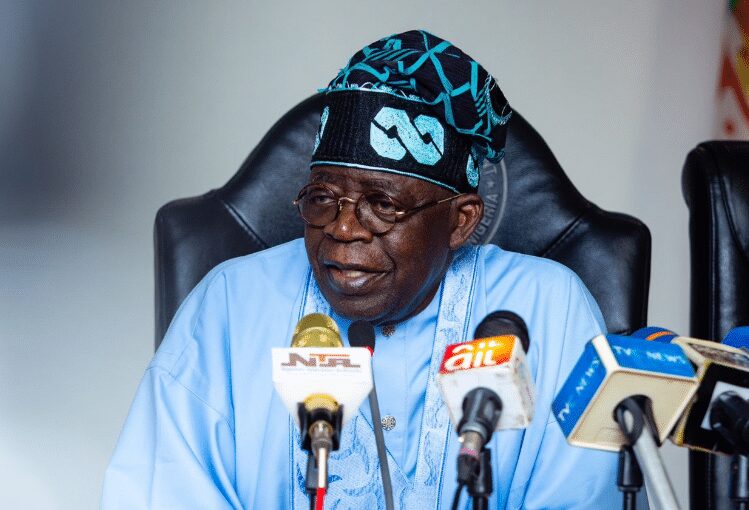President Bola Tinubu has announced major changes at the Nigerian National Petroleum Company (NNPC) Limited, including the removal of Mele Kyari as Group Chief Executive Officer (GCEO) and the dissolution of its board. These shifts, effective April 2, 2025, aim to improve the company’s operational efficiency and restore investor confidence in the Nigerian oil sector.
The decision was confirmed through a statement by Bayo Onanuga, the Special Adviser to the President on Information and Strategy. Tinubu invoked his powers under the Petroleum Industry Act (PIA) 2021 to execute these leadership changes, focusing on NNPC’s growth and enhanced commercial viability.
New Leadership Appointments
To strengthen NNPC’s leadership, President Tinubu has appointed Bayo Ojulari, an experienced oil and gas professional, as the new GCEO. Ojulari, who has an extensive background in petroleum process engineering and field development, replaces Mele Kyari, who faced challenges in navigating the complexities of Nigeria’s oil sector.
Ahmadu Musa Kida has been named the new non-executive chairman of NNPC, taking over from Pius Akinyelure. With over three decades of experience in the oil and gas industry, Kida is expected to bring valuable insight and direction to the company during this period of transformation. Additionally, Adedapo Segun has been appointed as the Chief Financial Officer (CFO) to further solidify the company’s leadership structure.
Board Restructuring and Regional Representation
As part of the restructuring, six non-executive directors representing Nigeria’s six geopolitical zones have been appointed to NNPC’s board. These include:
-
Bello Rabiu (North-West)
-
Yusuf Usman (North-East)
-
Babs Omotowa (North-Central)
-
Austin Avuru (South-South)
-
David Ige (South-West)
-
Henry Obih (South-East)
In addition, Lydia Shehu Jafiya, Permanent Secretary of the Federal Ministry of Finance, and Aminu Said Ahmed from the Ministry of Petroleum Resources will represent their respective ministries on the board.
Strategic Plans and Industry Goals
President Tinubu outlined a strategic action plan for the new NNPC leadership, including reviewing the company’s assets to maximize value. The administration’s focus on reforming the oil sector is evident through the efforts to increase domestic refining capacity and ensure energy security for Nigeria.
Since taking office in 2023, the Tinubu administration has already attracted $17 billion in new investments for the oil industry, with a goal of increasing that to $30 billion by 2027 and $60 billion by 2030. The president’s ambitious targets also include raising Nigeria’s crude oil production to two million barrels per day by 2027 and three million barrels per day by 2030, along with increasing daily gas production to 8 billion cubic feet by 2027 and 10 billion cubic feet by 2030.
Focus on Domestic Refining
As part of these strategic goals, President Tinubu emphasized the importance of boosting NNPC’s refining capacity, with a target of increasing refining output to 200,000 barrels per day by 2027 and 500,000 barrels per day by 2030. This push for domestic refining is crucial in reducing Nigeria’s dependence on fuel imports and strengthening the country’s energy security.
Expertise Behind New Leadership
Ahmadu Musa Kida, the newly appointed chairman, brings a wealth of experience from major energy companies, including his role as deputy managing director of Total Exploration and Production. Kida holds a degree in civil engineering from Ahmadu Bello University and a postgraduate diploma in petroleum engineering from the Institut Francaise du Petrol in Paris.
Bayo Ojulari, the new GCEO, hails from Kwara State and previously served as managing director of Shell Nigeria Exploration and Production Company (SNEPCO). His extensive expertise in strategic planning and field development positions him to lead NNPC through its transformation.
Gratitude to Outgoing Leadership
In his message to the outgoing board members, President Tinubu expressed gratitude for their efforts, particularly their work in rehabilitating the Port Harcourt and Warri refineries. These refineries have now resumed production after long periods of inactivity, marking a significant step toward Nigeria’s energy self-sufficiency.
The President wished the outgoing leaders success in their future endeavors and reaffirmed the government’s commitment to advancing the nation’s energy sector.



